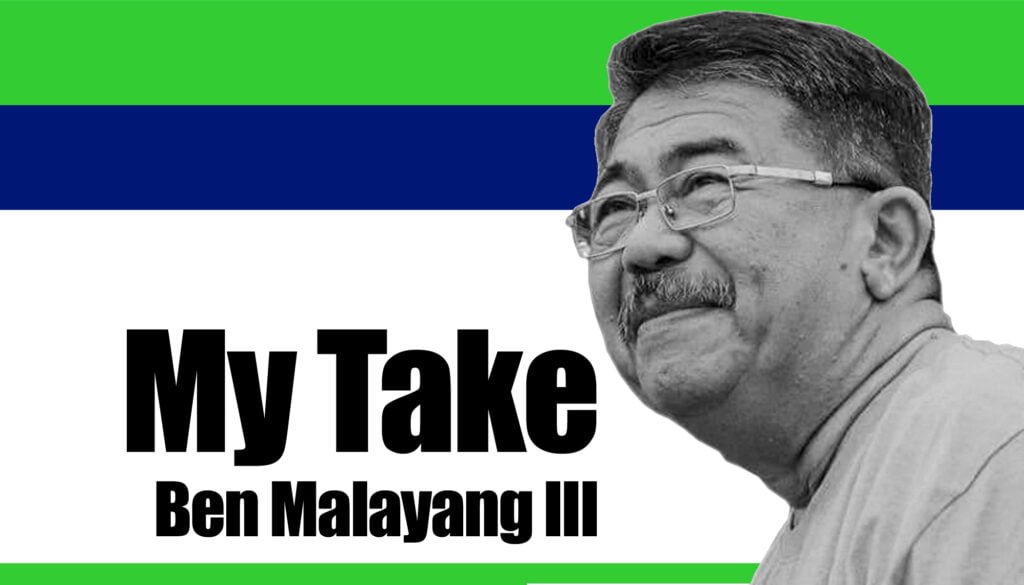
June 12, 2021. Another day, another year, to celebrate Philippine Independence. But this is no ordinary year to celebrate Independence.
President Duterte issued Executive Order 138 on June 1. It prescribes the guidelines and basic steps that government would do to implement the Mandanas-Garcia ruling.
This is a Supreme Court decision on Mandanas, et. al. vs. Executive Secretary, et al. contending that the “just share of LGUs from national taxes” provided for in the Local Government Code of 1991 is not limited to national internal revenue taxes collected by the Bureau of Internal Revenue but includes collections (customs duties) by the Bureau of Customs.
The Supreme Court in a series of two rulings on the petition and on an appeal (G.R. No. 199802 and G.R. No. 208488). The Supreme Court ruled that “all collections of national taxes, except those accruing to special purpose funds and special allotments for the utilization and development of the national wealth, should be included in the computation of the base of the just share of LGUs.”
Because of this ruling, more share of total national revenues (P1.083 trillion 2022, or 4.75 percent of GDP) would go to LGUs next year (2022) to execute their mandates and devolved functions. This would be P152 billion more than the P848.44 billion (or 3.72 percent of GNP) that they would have received without this ruling. (These numbers are from the World Bank’s June 2021 Philippine Economic Update released on June 10, 2021; it cites data from the Department of Budget and Management and other sources.).
As a result, EO 138 spurs more of the functions of national government agencies to be devolved to LGUs. Simply put, because the money to operate the national government would be significantly reduced, then it shall need to transfer to LGUs more of its responsibilities and tasks. It will do this by expanding and hastening the transfer to LGUs of the delivery of public services that the Local Government Code mandates to be devolved to LGUs.
When before, the national government ceded to LGUs only some bits of the delivery of these services, this time it is forced to do so. (That is, given the inherent reluctance of institutions to lose resources and powers, it would perhaps cede functions only in proportion to the amount that it would lose to LGUs.)
Incidentally, EO 138 recognizes the reality of national agencies needing to downsize staff and operations. So, it tasks the agencies to prepare their devolution transition plans specifying what functions they’ll devolve, how much of these functions to devolve, the program of transfer of the functions to LGUs, and ways to ensure that affected personnel would be amply protected or compensated.
This makes this year’s Independence Day celebration take on an added significance. This would be a pivotal year for LGUs. Following this year, LGUs would be more independent from “Imperial Manila” when it comes to funding their delivery public services, and more of the national revenues would be decided locally on how they would be used. Provincial, city, municipal, and barangay legislative bodies would have power over a larger proportion of the national purse. The power of Congress could be diminished a bit.
But what’s the downside? Plenty.
First, the national government could push for more of its tasks (especially the politically unsavory and costly ones like regulatory oversight and enforcement or resolving road-right-of-way disputes) to be loaded on LGU shoulders. It may result in LGUs becoming burdened by “additional assignments” that would cost them more than they gained from Mandanas-Garcia.
Second, because this ruling causes a sudden reallocation of power associated with “who has the money”, tensions between LGUs and national government agencies and among LGUs doing public services whose benefits would cut across LGUs (like fisheries management, or watershed protection), may rise and would raise higher “transaction costs” for the LGUs.
And third, of course, more people and groups would direct their requests for services and assistance to LGUs rather than to national agencies. LGUs could be swamped.
Some red flags and “black swans” to consider:
- The economy tail-spun in 2020; 2023 LGU revenue allocations may be much lower than next year’s because the 2022 allocations were based on 2019 revenues (a good year).
- The country’s economic situation this year to next could go up or down depending, for one, on how we could contain the CoViD-19 pandemic; this could affect post-2022 allocations.
- If the devolution contemplated in EO 138 would hit roadblocks or fail, there could be significant melees and disruptions in NGA-LGU delivery of public services.
- If affected national government personnel were not properly compensated and their circumstances are not well addressed, the “transaction cost” of implementing Mandanas-Garcia would likely rise and translate to “election year blues and complications”; this could in turn affect the implementation of the ruling.
- LGU “underspending” could worsen; this, because many LGUs do not have the needed capacities to overcome complicated rules and regulations on procurement and accountability, and on meeting technical standards set by law, that many are not able to fully spend their money on delivering public services; with more money under Mandanas-Garcia, and without immediately redressing capacity shortfalls, underspending could worsen.
And here are two big “elephants in the room”: (1) Notwithstanding the President’s EO, national government agencies may actually be resistant to devolution; after all, who’s really will to readily and suddenly lose power and influence, cede power to others, and most of all – lose personnel and the size of their “power domain”? And (2) LGUs may actually resist their additional functions if (a) improvements in their capacities are slower than the rate they are made to assume new mandates, and (b) the “mandate loads” exceed their being able to afford their satisfactory execution with the new amounts they get from Mandanas-Garcia.
As is often said, Abangan!
A pivotal year could pivot in many directions. – NWI




